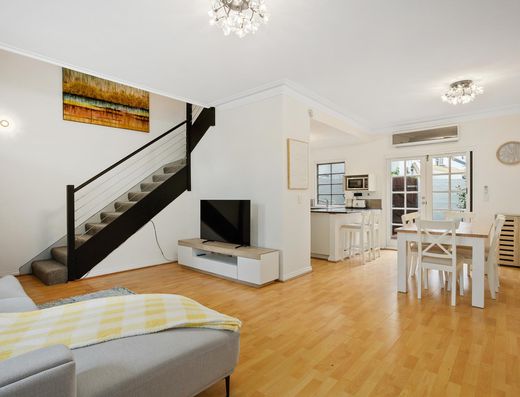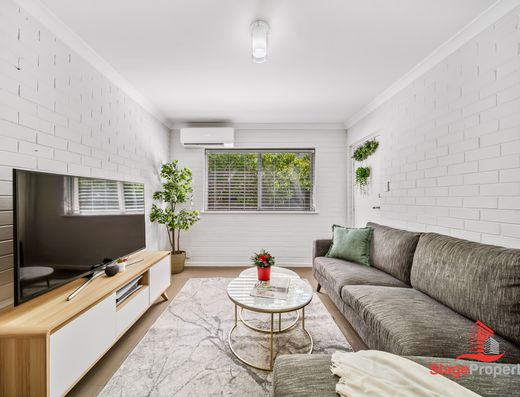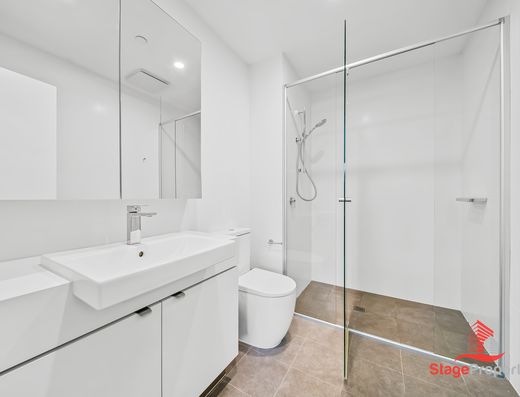21 investment property tax deductions
Property investors have a variety of things they can claim for when it comes to tax time each year.
Experienced property investors know that deductions are often the difference between a negative cash flow and a positive one.
With that in mind, here are the top tax deductions for investment properties:
Expenses you can immediately claim on a rental property
1. Agent fees (including advertising costs)
- Landlords need to find tenants or re-let properties and do so through a range of advertising.
- If you market your property using online, print media, brochures and signs, you can claim these advertising expenses against your income in the same year that you paid for them.
2. Body corporate fees
- If your property is on a strata title, you can claim the cost of body corporate fees.
- If the fee includes maintenance and garden expenses, you cannot claim these expenses separately.
3. Loan interest
- Investors can claim the interest charged on a loan for an investment property and any bank fees for servicing that loan.
For example, if you incur $20,000 interest on your loan and $200 in loan fees, you can claim these on your personal tax return. You can't, however, claim your repayments on the principal sum, and you can't claim interest on the entire size of the loan if you refinanced a portion of the loan for private purposes, regardless of whether equity in an investment property was used as security in that loan.
3. Council rates and taxes
- Rates can be deducted in the year that they are paid, although you can only claim them during periods in which the house was rented.
For example, if your investment property was only rented for 180 days of the year, then you can only claim your rates for that period. This means you would claim 49.3% (180/365) of the total amount you paid in council rates for your investment property that year.
4. Council rates and taxes
- As long as you have a rented dwelling on your investment property, you can use land tax as a deduction.
However, the levy differs significantly between states; as does the timing of when you can claim the cost. This is why you should consult a tax advisor or the appropriate state government department to ensure you are claiming the correct amount in the right year.
6. Repairs
- You can claim repairs as an immediate deduction if they relate directly to wear and tear. This is to say, if you replace a few broken roof tiles after a storm or repair an appliance, you can claim the costs of hiring a professional to make these repairs as an immediate deduction.
7. Maintenance
Maintenance includes ensuring objects in the property that are in otherwise good working order so that the property remains tenantable, such as:
- Cleaning costs
- Painting costs
- Servicing electrical appliances that remain at the property
- Oiling exterior decks
- Lawn and garden maintenance
- Ensuring trees on the property are safe
- Maintaining pipes and plumbing on the property
- Maintaining a swimming pool
- Rental providers in Victora are under new obligations to undergo gas and electricity safety checks every two years. These must be done by licensed professionals and evidence of these checks must be kept on record until the next one is done.
- Smoke alarms must also be checked regularly, as required by law. Depending on the age of the building and the state it's in, these may also need to be hard-wired with a battery backup.
- 8. Insurance
- You can claim the cost of insuring a rental property. Refer to your quarterly statements for the amount, or request an annual breakdown from your provider.
9. Pest control
- Depending on who paid for the service, either the tenant or landlord can claim an immediate deduction for the cost of hiring a professional pest controller.
10. Quantity surveyor
- When a property owner needs to get information about the site they will often hire a quantity surveyor who can estimate the cost, scope, opportunities and risks of either existing structures or future structures. The cost for this service can be claimed immediately.
11. Education
- Property owners wanting to learn more about property management can claim back fees for courses they attend.
- Costs to attend seminars around acquiring more properties and property investment, in general, cannot be claimed.
12. Utilities
- Utility charges such as water rates can be claimed immediately.
16. Legal expenses
- Costs for legal advice and documents that relate to rental activities are tax-deductible.
For example, if you are evicting a tenant or going to court over unpaid rent, then you can claim the costs of doing so, as well as the costs of preparing all relevant legal documents.
Expenses that can be claimed over time
1. Borrowing expenses
Investors can claim costs associated with borrowing money to purchase the property over five years. This includes
- Loan establishment fees, including title search fees and valuations
- Lender's mortgage insurance (LMI)
- Cost of completing mortgage documents
2. Improvements
According to the ATO, you cannot claim the costs of improving your property in the same tax year of incurring them. Improvements could be anything that:
- Provides something new
- Improves the income-producing ability or expected life of the property
- Goes beyond just restoring the efficient functioning of the property
- In some states, such as Victoria, rental providers are required to replace old items with more efficient versions. Read more here about the full list of rental reforms in Victoria.
3. Depreciation
Appliances and other asset depreciation
- When offering a rental, landlords often install dishwashers, washing machines, air conditioners, stoves and other assets. Just like the building itself, these appliances decline in value and landlords can claim this depreciation over several years, usually in line with each asset's "effective life".
- However, landlords can only claim depreciation on assets when they meet certain criteria.
- You can only claim deductions on both brand-new and second-hand depreciating assets in residential rental properties if you bought the property before 7:30 pm on 9 May 2017 and installed the asset before 1 July 2017. Otherwise, you can only claim depreciation on an asset's purchase price if the asset was brand-new, or if no one had previously claimed depreciation on the asset because the property was either newly constructed or recently significantly renovated.
- If you replace an appliance, you will need to claim this cost as a depreciation deduction, over the course of the asset's lifespan.
Capital works deductions
- If you replace an old fence or install new carpets purely in a bid to increase the value of the property, then you will need to claim these costs as a capital works deduction, at 2.5% a year for 40 years.
- Depending on when your investment property was built, you may be able to claim a deduction on the depreciation of the building's structure and any renovations you make to the property.
- If the property was built before 16 September 1987, you won't be able to claim depreciation on the original construction costs; if it was built after that date, you can claim a depreciation deduction on these costs of 2.5% a year for 40 years. This would mean that, if the building was built for $100,000 in 1990, you could claim a depreciation deduction of $2,500 a year until 2030.
- Similarly, you can't claim depreciation deductions on renovations that took place before 27 February 1992, but you can claim depreciation deductions on structural improvements that took place after this date, at a rate of 2.5% for 40 years.
- You can only claim deductions for the period in which the property was rented or available for rent.
- Improvements can be either capital works where it is a structural improvement or capital allowances where the item is a depreciating asset.
- Capital works, such as a bathroom or kitchen renovation, can be claimed as capital works or a capital allowance.
4. Bookkeeping costs
- You can claim the costs of advice, preparation of tax returns and expenses incurred for the management of your rental accounts in the same year the costs were incurred.
- Be aware that you cannot claim a deduction against your rental property for the cost of preparing your personal tax return. However, you can submit this as a write-off when doing your own income statement for the year.
5. Stationery and phone costs
- Serving as a landlord is similar to running a business, and so the ATO will allow you to claim deductions for stationery, phone contracts, internet and electricity usage – as long as you only claim for the portion of these expenses that relate to your investment property.
Bear in mind that, if your claim for this deduction is higher than the average for property investors, this could raise a red flag to the ATO.
Investment property deductions you can't claim on tax
1. Costs incurred in acquiring the property (including legal fees)
2. Stamp duty (this is a capital expense)
3. Bills that have been paid by tenants
4. Any proportion of borrowing costs where you've used funds for personal use
5. Expenses incurred when using the property for personal use
6. Insurance costs where the loan will be paid out in the event that you die, become disabled or are unemployed.
Recent changes
1. Deductions for vacant land
- Costs incurred to hold vacant land on or after 1 July 2019, even for land held before that date, are no longer able to be claimed unless the land has been used for business purposes or if there are exceptional circumstances.
2. Travel costs
- A mum and dad property investor can no longer claim the costs of travel to inspect a rental property or carry out repairs.
The exceptions to this rule are excluded entities and landlords who are carrying out a business of property investing.
Negative gearing
Under the current government, investors can offset any losses they make on an investment property against their assessable income, also known as negative gearing.
Capital gains discount
- If you make a capital gain on the sale of your investment property, you need to pay tax on this profit.
- If you bought and sold your property within 12 months, your net capital gain is simply added to your taxable income, which, in turn, increases the amount of income tax you pay.
- However, if you held onto the property for more than a year before selling it, you're eligible for a capital gains discount of 50%, which means you only need to incorporate half of the capital gain into your personal tax return.
Source: REA








